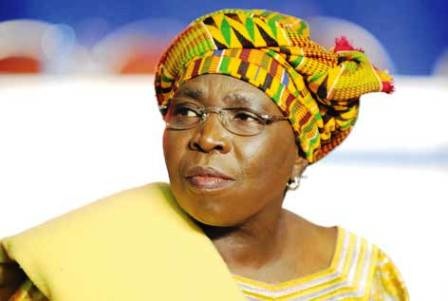Dr. Nkosazana Dlamini Zuma Chairperson of the African Union Commission
African leaders have agreed that conflict resolution is a prerequisite to development and poverty eradication.
From time immemorial there is ample evidence that countries and societies in conflict situation where human rights and fundamental freedoms are abused experience great difficulties in designing and implementing programs to reduce poverty and inequality. By contrast in stable societies where rights and freedoms as well as the rule of law are respected, poverty has declined much faster. Unstable societies perform poorly in poverty eradication in large part because they don’t have capable institutions and checks and balances due to discrimination, brain drain and corruption.
It has been demonstrated that in fragile or unstable countries, the implementation of the Millennium Development Goals (MDGs) including halving extreme poverty and hunger by 2015 has lagged far behind.
There is also evidence that in societies such as those in the Great Lakes region of Africa that have experienced endemic instability increasing financial assistance is unhelpful in addressing inequality and poverty challenges and their offshoots of hunger, disease and illiteracy because these societies don’t have sufficient absorptive capacity. Ipso facto, availability of large financial donations could promote corruption, waste and mismanagement of foreign aid.
In recognition that instability and fragility undermine development and poverty eradication efforts, African leaders stressed in the Constitutive Act adopted in 2000 that created the African Union the need to promote peace, security and stability on the continent; promote democratic principles and institutions, popular participation and good governance; and promote and protect human and peoples’ rights.
In its 2005 report titled “Our Common Interest” the Commission on Africa stressed the importance of constructing the capacity of African states and societies in order to prevent and/or manage conflicts that have constrained development and poverty reduction endeavors. At its Summit in May 2013, African leaders underscored that conflict resolution is a prerequisite for development and poverty eradication in Africa.
In their Common African Position (CAP) for the preparation of post-2015 development agenda, African heads of state and government have stressed the need to address the root causes of conflict and strengthen good and inclusive governance, fight against all forms discrimination and forge unity in diversity. They have also agreed to strengthen cross-border cooperation to prevent the outbreak of armed conflict and implement comprehensive, post-conflict reconstruction programs.
This is a welcome development that should be favorably supported by Africa’s development partners during the implementation of the post-2015 development agenda scheduled to run from 2016 through 2030.












